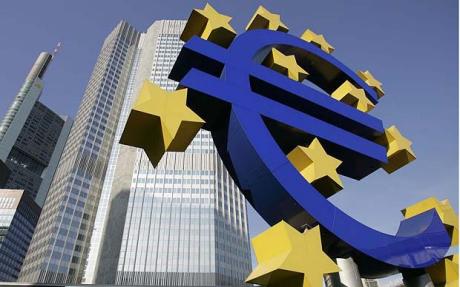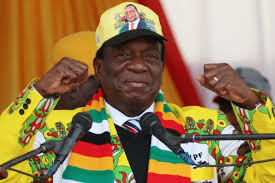
The European Union Head of Delegation to Zimbabwe, Aldo Dell’Ariccia ends his tour of duty on August 31.
The Standard correspondent, Edgar Gweshe (EG) interviewed Aldo Dell’Ariccia (DA) to find out about his experiences and hopes for the future. Below are excerpts of the interview.
EG: For how long have you been in Zimbabwe and how has been the experience? DA: I have been in Zimbabwe for a little less than four years. I arrived on September 9 2010 and I am leaving on August 19 this year, for a short break. My tour of duty in Harare ends on 31 August 2014. My experience in Zimbabwe has been absolutely positive. There have been challenging moments, but all in all, it has been a very interesting and professionally gratifying moment in my career.
EG: Have you ever worked anywhere else in Africa and if so, what has been your experience with African states regarding issues of democracy and political stability? DA: No, this has been my first posting in Africa. It has been an interesting experience after having worked in Latin America, Asia and the Pacific.
EG: What is your assessment of EU-Zim relations since the time you were appointed to head the EU delegation to Zimbabwe up to date? DA: Throughout my stay in Zimbabwe from 2010 to 2014, together with the excellent team at the Delegation, we have managed to progress well in the engagement with the government of Zimbabwe in view of achieving the ultimate goal for the European Union, which is to contribute to a more prosperous and democratic future for the people of Zimbabwe. I would dare to say that EU-Zim relations have improved meaningfully.
EG: How was your relationship with the Zimbabwean government and the ruling Zanu PF party given that in 2002, the EU imposed targeted sanctions against President Robert Mugabe and some of his lieutenants? DA: I can only comment for the period of my mandate in Zimbabwe. During this time, I think we have managed to establish a frank and open dialogue with the now ruling party. Our respective positions are clear and we have progressed towards a better understanding of and commitment to the process that would lead to the full normalisation of our relations.
EG: Do you think the targeted sanctions served their purpose? DA: The targeted measures were imposed on individuals and companies as a means to pressure them towards the correction of a situation that the EU considered as wrong. If we look at Zimbabwe today, we see that the situation has improved.
EG: Zanu (PF) has been on record claiming the targeted measures were responsible for the downfall of Zimbabwe’s economy. Do you agree? DA: I do not think that the prohibition of entering the territory of the European Union for certain individuals, the freezing of their assets in banks in the EU territory, and the prohibition for European companies to enter in business with the companies owned by or with links to these individuals can entail the downfall of an economy. It is true that the listing of the Zimbabwe Mining Development Corporation (ZMDC) has prevented the diamonds mined in the Marange area to be sold in the EU, until the delisting last year, but other diamonds from other areas where ZMDC was not involved could be sold without restrictions. I think that the reasons for the economic difficulties Zimbabwe went through since 2000 should rather be sought in certain political economic decisions of the government.
- Chamisa under fire over US$120K donation
- Mavhunga puts DeMbare into Chibuku quarterfinals
- Pension funds bet on Cabora Bassa oilfields
- Councils defy govt fire tender directive
Keep Reading
EG: How have you also helped in ensuring the prevalence of democracy and respect for human rights in the country up to date? DA: The EU has continued being a reliable partner for the Non-State actors that are active in the governance sector, in particular in the field of the defence of human rights and the strengthening of the rule of law. We have also been working with the Parliament and the Government in these areas, in particular through support to the Human Rights Commission and other Statutory Commissions. Together with other development partners, the EU has also supported Jomic and the process to develop the new constitution.
EG: In your own words, how helpful would it be for the EU to re-engage with Zimbabwe? DA: The EU is convinced that Zimbabwe has a key role to play in the region and in the continent. Our re-engagement aims at facilitating the fulfilment of this ambition. A peaceful and prosperous southern Africa is an asset for the whole world.
EG: Lack of transparency and corruption has been blamed for Zimbabwe’s failure to realise benefits from its natural resources such as diamonds. Do you agree and if so what measures do you think need to be implemented? DA: We take note with interest the government’s declaration of a zero tolerance concerning corruption. We are still waiting to see which mechanisms will be put in place to ensure the success of this strategy.
From the EU side, I can only highlight the fact that when you are in a proper environment, like the diamonds’ trade centre in Belgium, there is no space for corruption and all the operations are transparent and accounted for. I think that on the occasion of the two auction sales of Marange diamonds in Antwerp, for the first time, the minister of Finance knew exactly how much would flow to the coffers of the State.
EG: Zimbabwe has over the last years witnessed elections whose outcomes have often been contested. Does this affect EU-Zim relations and what measures need to be put in place to guard against disputed polls in the future? DA: The re-engagement with Zimbabwe was hampered by the fact that the credibility of the July 31st elections was put into doubt by two regional African Election Observation Missions (the Sadc’s and the AU’s) and the domestic observers which registered irregularities and shortcomings in the process.
The reports of both African EOMs identify the deficiencies and weaknesses of the electoral system and indicate the ways of improving the electoral environment. The EU stands ready to support the competent national authorities in implementing these recommendations, if so asked by the government.
EG: Your last words as you leave Zimbabwe DA: I am particularly happy that during my period as the Head of the EU Delegation, we place arts and culture very much at the centre of our intervention with Zimbabwe. Considering the amazingly artistic nature of the people of Zimbabwe, the cultural cooperation has presented an excellent opportunity for improving the mutual understanding and respect between the EU and Zimbabwe.











